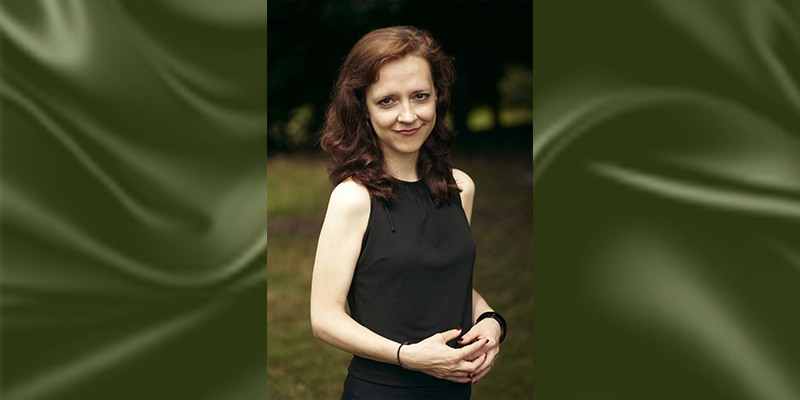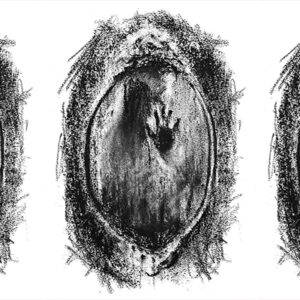Megan Abbott never considered herself a writer, although she admits she always liked to write. Instead, she ended up pursing a career in academia. Her goal was to teach college literature, especially the type of foreboding noir fiction she loved.
She grew up in Grosse Pointe, the famed affluent Detroit suburb filled with auto executives. She had a happy childhood––no trauma that might have formed her fascination with the darker side of noir crime novels and films.
“I read Helter Skelter as a kid and it terrified me, but I couldn’t put it down,” she says. Megan read novels by James Ellroy and later fiction by other classic noir writers like Dashiell Hammett, James M. Cain and Raymond Chandler. She was drawn by the danger, and excitement. “I found this life in books and movies.” It was something she never experienced in affluent suburbia.
“Those books reflected the way I see the world,” she says. “I know people find them to be dark and filled with dread. I don’t see them that way. That’s just the way I see things.”
“I suppose they have a dark glamor for me,” she says. “It seemed so much better than suburban life and I seemed to feel that. I understood them somehow.”
Grosse Pointe is home to about a dozen of the nation’s richest families. Megan’s father, however, was a college professor and chose to move the family there for the superior public schools. But living on a professor’s salary did not allow for country club memberships, Megan says. “My folks were the only Democrats in the neighborhood, the only people who subscribed to the New Yorker or went to see foreign films. So, I always felt like an outsider. It was one of the reasons I wanted to move to New York.”
She chose New York University for graduate school and her chance to live in the Big Apple. More than two decades later, she hasn’t left. “The program at NYU was pretty liberal. At a time when few English departments taught crime fiction, you could there. They didn’t see crime as a lesser genre.”
The first hint she might get the itch to write a novel came when she decided to write her PhD thesis on the “tough guy” in 1930s-50s noir fiction. She was interested in the fragility of the so-called hardboiled heroes, their fraught masculinity. It wasn’t exactly a topic most literature majors chose for their dissertation.
“When I talked to my advisors, they worried it would be hard for me to get a college faculty position. At that time there was very little scholarship focused on crime fiction. They were right. It was hard to find a job.”
But she did get an assistant professorship at the State University of New York at Oswego. “I can’t say teaching came naturally to me,” she says. “I knew that world, but it never felt right for me, but I loved talking about books.”
So, she began writing fiction.
“It was just an outlet. It was my first year of tenure track teaching.” It slowly became something, and she realized she’d completed the first draft of a book she never intended to write. She also didn’t envision herself as a published author. But now she began to seriously rethink her goals.
As a child watching movies, Megan loved film noir. She especially loved the films “Double Indemnity,” “In a Lonely Place,” and “The Big Sleep.”
Her first noir novel, Die a Little, is set in 1950s Los Angeles (well, of course). She used her menacing imagination because, well, she’d never been there. “I was always attracted to crime fiction rather than mysteries. I really had to find my way.”
And she most certainly did.
In her novel, Lora King’s brother Bill, a junior investigator for the local D.A., marries a mysterious young woman, Alice Steele, a wardrobe assistant in Hollywood. The relationship between the two sisters-in-law is strained by inconsistencies in Alice’s past that raise Lora’s suspicions. Lora, a schoolteacher, begins to uncover a dark world of drugs, violence, and prostitution, and fears she may become prey to it all.
“I had a premise. I was interested in female characters’ view of someone who would be a femme fatale in a male writer’s novel…The first draft had many points of view, then I changed it to the sister’s point of view. I was trying to figure out how to have a finished book and have it follow the through line to the end…I didn’t even know it would become a crime novel. I just had the premise. The dynamics became the main characters.”
She began querying agents. Paul Cirone, an assistant agent at the time with Molly Friedrich, responded. He liked what he saw, but it wasn’t a book yet, he told her. He recommended she continue to work it. She revised for four months and sent it back to him, and he agreed to rep her.
Early on, “There was one editor who was very interested, but she couldn’t sell it upstairs to her boss,” Megan says. So, it took more than six months before Denise Roy at Simon & Schuster expressed interest.
“It didn’t sell a lot of copies. It never went into paperback, but it did get good reviews. I think that’s what saved me. And it got an Edgar nomination for Best First Novel.” Hollywood also optioned it, but as in most cases, never followed through with a movie.
Simon & Schuster asked for a first look at her next novel. Denise Roy bought that one too.
Megan wasn’t familiar with the crime fiction community, so soon after Die a Little was published, she went to Bouchercon, the mystery writers and fan conference, and finally felt at home.
“Here’s all these weirdos like me,” she says. “It was incredible. I made so many friends. I didn’t have to explain who James M. Cain was.”
She doesn’t like to think about hitting it big in the publishing world, although she has. “It’s a bad metric for writers to think about.” So-called success, she says, “is based on the vagaries of the market,” and not necessarily on talent or the quality of the work. “I just knew once I started writing I couldn’t stop, whether people would publish me or not.”
During her two more than two decades as a novelist, “I’ve learned about what I don’t want to know. I don’t read reviews. I don’t ask about sales. You get so anxious.”
She remembers one reader’s email for her fifth book. A woman wrote she had finished her novel, took it in her backyard, and burned it. “She finished it! How offended could she be? I just find it easier not to engage in any of that. There’s always enough stress.”
Her coping mechanism has always been to write. “I always feel most at home in a crime story…I want to be in the world I create and then I want to leave it when I’m done.”
How did she break out among so many other writers? “There weren’t a lot of women writing dark crime at that time. Thankfully, now there are.”
Later, she wrote a series about teenage girls and created a crime space that didn’t exist. “I think that made me stand out more.”
Could she do it today? “It’s really hard to breakout as a writer these days. There’s very little press coverage of books anymore, very little press anymore…If I had a debut come out now it would be really stressful. BookTok, Goodreads, obsessing over Amazon rankings. I think it’s all just bad for writing.”
While she’s had her share of ups and downs during her writing career, there have been more highs than lows. She’s even branched out into screenwriting, including writing, producing and was a co-showrunner on a Netflix series based on her novel Dare Me.
In the publishing world, she says, “A lot has changed but a lot has stayed the same…I’ve seen everything that’s happened in publishing. It’s happened to me. The one thing I can be proud of is my resilience.”
“I feel like the hooker in the hotel lobby. I’m still here.”
Die a Little
Start to Finish: 2.5 years
I want to be a writer: Liked to write, but it never occurred to her she may someday become an author. Started thinking about it with her dissertation in grad school and then wrote as a way to cope with stress in her first-year assistant professorship.
Experience: Noir fiction dissertation, taught literature at NYU and SUNY.
Agents Contacted: About 50
Agent Responses: 4 or 5
Agent Search: Four months
Time to Sell Novel: Six months
First Novel Agent: Many months
First Novel Editor: Denise Roy
First Novel Publisher: Simon & Schuster
Inspiration: Dissertation on hard boiled crime fiction. I loved noir books so much
Advice to Writers: Lean into your idiosyncrasies. Don’t mimic the trend. I think individual voices and weirdness triumph. And read, read, read.
Website: MeganAbbott.com

















